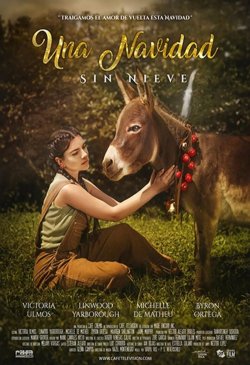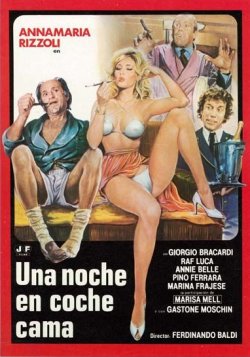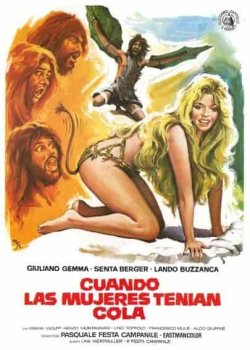 |
|
SINOPSIS
Tras un tiempo buscando a su hija, un padre la encuentra ingresada en el ala de cuarentena de un hospital. El motivo es que la chica ha sido infectada por un virus que transforma al humano en un zombie...
INTÉRPRETES
ARNOLD SCHWARZENEGGER, ABIGAIL BRESLIN, JOELY RICHARDSON, J.D. EVERMORE, RACHEL WHITMAN GROVES, JODIE MOORE, BRYCE ROMERO, AIDEN FLOWERS, RAEDEN GREER
MÁS INFORMACIÓN DE INTERÉS
![]() CLIPS
CLIPS
![]() CÓMO SE HIZO
CÓMO SE HIZO
![]() VIDEO ENTREVISTAS
VIDEO ENTREVISTAS
![]() AUDIOS
AUDIOS
![]() PREMIERE
PREMIERE
 GALERÍA DE FOTOS
GALERÍA DE FOTOS
https://cineymax.es/estrenos/fichas/112-m/96852-maggie-2015#sigProIddbff9df9ee
 INFORMACIÓN EXCLUSIVA
INFORMACIÓN EXCLUSIVA
Set in the near future of a post-zombie apocalypse, the independent dramatic thriller MAGGIE stars legendary action film star Arnold Schwarzenegger as a stoic, protective father and farmer, who refuses to give up his 16-year-old daughter Maggie, portrayed by Abigail Breslin, when the teenager becomes infected with the walking dead virus – only to confront the true horror and heartbreaking decision he must make before his daughter turns. Says Schwarzenegger, “This is something very new for me, and for the zombie genre. It was so different I didn’t just want to star I wanted to produce, which I normally never do.”
Based on an original screenplay by first-time screenwriter John Scott 3, which made the industry’s 2011 Blacklist for best unproduced screenplays, MAGGIE marks the feature film directorial debut of renowned graphic designer, commercial and title sequence director, Henry Hobson, as well as the first time Schwarzenegger has starred in or produced a low-budget, independent film.
“When my team brought me this script and told me it was on the Black List, meaning it is one of the best scripts that hasn’t been made, I was intrigued,” said Schwarzenegger. You’re used to seeing me play the ‘ubermensch’, the action hero bullets can’t seem to hit. In Maggie, I am the everyman, a stoic farmer dealing with the most basic concerns - protecting his family, and savoring every last second with his daughter.”
For director Hobson, Scott’s family-focused exploration of one of cinema’s most popular genres offered a simple yet emotionally rich narrative well-suited to his distinctive and compelling visual style -- an exciting opportunity to move into directing feature films.
“In a sea, or should I say horde/plague/hunger (collective noun for zombies) of zombie projects MAGGIE stood out. Instead of echoing the huge global crisis being shown in other zombie projects, MAGGIE is about the small scale. The relatable relationship. A father and daughter in a no name town. Allowing the audience to see themselves in that situation and ask what would I do? The slow turn shines a light into what it means to be human,” said Hobson. “Using it as a disease much like cancer, but with the twist of it being deadly, the stories’ dark progression is marked by the fracturing family life. When everyone around you is touched by it, it becomes difficult to offer the human level of empathy and sympathy. I was intrigued by showing what that could do to a family and their community. How do you support your neighbor when you are terrified of the impact of who they are harboring? I loved the small town setting; the close knit locale means that the pain of alienation is more real and foreboding. The script painted a picture that was more Days of Heaven than 28 Days Later.”
“At its core, it is a film about a father protecting his daughter”, said Schwarzenegger. “We’ve seen the zombie hordes and machine guns in other movies – it all seems like an unbelievable future. Maggie makes the disease real by shrinking the world of the movie to focus on one family, in the middle of nowhere, on their wasted farm. When I read it, I knew I had to do it. It is more vulnerable than any role I have played, more real, more emotional.”
“The transformation of the father-daughter relationship was what grabbed me initially,” said MAGGIE producer Colin Bates. “It’s the journey of a family coming to terms with the past, dealing with the ramifications of the present while preparing for an inevitable future of loss and uncertainty. It’s more poignant than you’d expect from the average zombie movie, begging the question, how do you seek peace when your world is falling apart?”
Producer Joey Tufaro, co-owner of New Orleans based production company, Gold Star Films, decided to engage several of his local partners to finance the film based on his immediate reaction to John Scott's script. "Zombie films have been around for decades; John, however did a remarkable job of showing the human side of this illness, how everyone is affected when someone in their life contracts the Necro-ambulist virus."
Producer Matthew Baer (Unbroken) former head of the motion picture division of management-production powerhouse Brillstein-Grey, recognized the power and originality of first-timer Scott’s screenplay when he first received it more than four years ago from producer Trevor Kaufman, Scott’s manager, partner and college buddy.
“It was so fresh, and thought provoking,” said Baer, who signed on to develop and produce the film with Scott and Kaufman. “It deviated from the usual zombie genre expectations and touched on end-of-life issues in a very intimate, emotional and moving way. There are metaphors and themes to the story that resonate and symbolize all types of things everybody goes through.” Bates agrees,” the screenplay itself piqued my interest first. The layers, textures, and complexities of it. I was in after the first read.’
A self-described fan of zombie films, Scott said when he decided to write his first screenplay, he wanted to explore the popular horror sub-genre in a way he hadn’t seen previously.
Lotus Entertainment President of production, Ara Keshishian, says Scott accomplished that goal. “What drew me to Maggie was the uniqueness of the screenplay and its underlying theme of love, what we would do to protect and save the people close to us. Crossing genres is always challenging and this film is one of the rare examples of doing it and doing it well.”
“When I set out to write MAGGIE, I wanted to explore the inevitability of death from the point-of-view of two very connected individuals dealing with the same issue in different ways: a teenage girl unjustly thrust into maturity and forced to reconcile relationships as her life is being torn from her, and her father, who is struggling with the inability to save his daughter, a fear every parent hopes they never have to face,” said Scott. “Ultimately, MAGGIE is an emotionally driven drama set in a recovering world. The horror in the story is the struggle these characters must face while dealing with Maggie’s unavoidable death.”
Adds Bates, “Instead of the gore we’ve grown accustomed to when thinking of Zombie’s, MAGGIE forces us to consider a more realistic scenario: if a virus with these effects were to become pandemic, it would likely take some time before the transformation from human to other is complete. Watching the prolonged stages of grief – from denial to acceptance - unfold for this family is somehow more terrifying than blood, guts and decay. It’s refreshing.”
Kaufman notes that although it is clear the virus turns human beings into zombies, no one ever says it. “My favorite thing about the way it’s handled is the word ‘zombie’ is never used in this movie,” he said. “We call it a virus and because of that you can substitute it for any type of illness or disease.”
That’s exactly what attracted Academy Award®-nominated actress Abigail Breslin who portrays the film’s title character to the role: She sees the virus as just another indiscriminate disease or contagion that turns one’s daily life into a waking nightmare. Breslin said she wanted the opportunity to portray the infected teen because she’s seen the horrible loneliness illness can bring.
“I really connected to the story because I’ve had friends who were really sick,” said the 19-year-old acclaimed actress, who made her big screen debut at age five in M. Night Shyamalan’s 2002 blockbuster film SIGNS. “I didn’t see MAGGIE as a zombie movie, but rather a movie about a disease and the isolation of being sick. I thought it was something I could really go full force into and take my time with the character. Our film is a humanization of zombies. Maggie’s not a monster. She goes in and out of her animalistic behaviors as the virus takes over. There are scenes with her friends that offer moments of relief from her isolation and sadness, the fact she’s dying. These are glimpses of what her life should be like. Then, we come back heavier than before because it’s all changing, it’s all going away.”
Instead of the near instantaneous change from human to living dead seen in most horror movies, the transformation from human to zombie in MAGGIE takes place over a period of weeks. By framing the walking dead contagion as a rapidly progressing virus, Scott grounds the zombie phenomenon in the terrifying, all-too-familiar world of pandemics. As Maggie deteriorates, she could be any tragic teenage girl struggling to hold on to life as she and her family deal with her inevitable death.
“There have been many films in which we see older men and women going through the trials and tribulations of devastating illness during which their bodies are deteriorating over time,” said Kaufman. “Having that character be a teenage girl was off-center, something we don’t really see often.”
In MAGGIE, becoming one the walking dead is treated as a health and public safety issue, rather than a gore-filled rampage or monster horror flick, another aspect of the story that moved Breslin.
“I hope the film shows how much people who are dying of a virus or disease need people to be there for them,” adds Breslin. “Shunning people and treating a sick or dying person like ‘the infected one,’ leaves them all alone at a time when they need people the most.”
In MAGGIE, however, the need for comfort and care is complicated by the reality that as the virus runs its course, instead of dying, the patient is transformed into a flesh-eating killer. As Wade stands by helplessly, watching his daughter slowly turn, he has to decide before it’s too late: When is Maggie no longer my daughter? When is she gone? When – and how-- do I put her out of her misery?
“It’s every parent’s nightmare,” said Baer. “A parent who is watching his child suffer from a disease over which there’s no control. As a father, that hit home for me. And you’re watching a girl agonize about what she should do given the dire situation she’s in, combined with being an adolescent: ‘What do my friends think of me? How long do I have left?’ And under all of it, there’s a ticking clock that at some point Maggie is going to turn into something that makes her dangerous to people who love her.”
In a departure for the zombie genre, the true horror and suspense in the drama MAGGIE lays not so much in the blood, brains and gore of the walking dead, but rather in the dark reality of caring for a child or loved one whose terminal illness or behavior make them a danger to themselves and their family – and eventually confronting the even darker choices that behavior presents to anguished, loving parents.
“The way the disease itself is portrayed helps to bring everything closer to home. This isn’t some magical outbreak where you’re bitten and one minute later you’re foaming at the mouth. It takes time - we know at least several weeks, but just like cancer or any other disease, we don’t know exactly when the disease will finally take you,” said Schwarzenegger.
“These are incredibly difficult choices,” said actress Joely Richardson, who co-stars as Caroline Vogel, Maggie’s stepmother, Wade’s second wife and the mother of his two younger children. “What do you do when someone gets sick? What would anyone do if a family member gets sick and is infectious? You want to keep them at home, protect them, but it means the rest of the family is going to be at risk. I think Caroline’s loyalty as a mother, especially, is split between the sick and the well. When she takes her two younger children and leaves, it’s a point in the story where Maggie’s getting worse and Wade’s blocked off entirely.”
As much as her departure upsets Maggie, Breslin says she believes that Caroline is doing the right thing. “Caroline is more complex than a ‘monster step-mom’ because she knows what will happen to Maggie next while Wade is holding on to hope, refusing to let go. Caroline comes across as wanting her other children to be safe, which takes away that motherly relationship Maggie wishes that she had - especially at this time – but is not able to have with her stepmom.”
Wade may be holding on to hope, but he does understand Maggie has a virus. The devoutly religious Caroline, however, views the viral pandemic in moral and spiritual terms. Caroline’s ardent beliefs come with judgments, which cause conflict with Wade and Maggie.
“Caroline has very blanket beliefs about heaven, hell, the devil and evil, and that complication is something I was attracted to,” said Richardson. “She’s basically a nice woman who clearly adores her husband, but is a bit misguided. I know she loves Maggie, but Maggie can’t accept her love and her religious views distance her from both Maggie and Wade.”
Although screenwriter Scott focused the story on a father and daughter coping with the child’s pending death, he sees Caroline’s dilemma and “slow unraveling” as a centerpiece of the story.
“She’s a loving, supportive wife to Wade, the mother of two of his three children and a stepmom to Maggie,” Scott said. “She’s a very maternal and caring woman who is trying to hold everything together. But, as the days pass and Maggie deteriorates, she has to tear the family apart to protect them, to keep them safe, and it’s killing her inside.”
Protection is not just a predominant theme in MAGGIE, it is the swirling undertow that rips and tugs at each of its main characters -- Wade, Caroline and Maggie -- isolating and tearing them apart at the very time they need and want to be together. It is at the heart of the conflict and the actions each character takes after Maggie returns home: When and how to protect themselves – and each other – from the rapidly approaching tragedy of Maggie’s death.
“When the film opens, the relationship between Wade and Maggie is really distant and Maggie has run away in order to protect her family from what’s happening to her,” said Breslin. “Maggie didn’t want to leave, but she was ashamed and scared and wanted to protect her family from what was going to happen. When Wade undertakes a dangerous search for her, and brings her home, he shows her he really cares and wants her to be there with her family for this really difficult time. He becomes her biggest protector and he’s protecting her from what he knows is going to happen. She’s trying to protect him from the emotional side of what she knows is going to happen and what she knows that will do to him emotionally.”
“The utter helplessness of the situation, one without the possibility of a positive resolve, truly resonated with me” said Bates. “What thread is there to grab hold to when hope is moot? Arnold and Abigail use their characters to explore this idea with a realness that will inspire.”
For Schwarzenegger, the unimaginable choice Wade faces is profoundly soul-wrecking: Maggie is not just his first child and oldest daughter, she is the only child he had with his late, first wife. As Maggie deteriorates and Wade steadfastly remains at her side, he soon realizes the only way he can truly protect his precious child is to end her misery – but how can he kill his own daughter?
“After my daughter Maggie, played by Abigail, is bitten, she makes the conscious decision to run away to protect the rest of us. I, as a father, make more of an instinctual decision to find her and save her. Any father knows that the instinct to protect your children is real, so it will resonate with them. It leaves you asking yourself, ‘What would I do?’ and it isn’t an easy answer - the tears you see are real.”
“I was heartbroken by the thought that ‘post event’ the world becomes numb to these tragedies, and so wanted to show an individual story of one family; to showcase the fact that in the scale of these enormous global events, it is the personal stories that make the events relatable, real and human,” said Hobson. “When everyone around you is touched by it, it becomes difficult to offer the human level of empathy and sympathy. I was intrigued by showing what that could do to a family and their community. How do you support your neighbor when you are terrified of the impact of who, or what, they are harboring. I loved the small town setting, the close knit locale means that the pain of alienation is more real and foreboding. The choices in this film are not just about life and death, it’s about asking yourself what would you do? Try and find a cure. What if that is hopeless, save them or kill them? Shrouded by the threat of what happens when someone becomes deadly, the choices are even more difficult to make.”
“This is the most human zombie film you have ever seen”, said Schwarzenegger, “and it’s the most human role you’ve ever seen me take on, and I’m proud of it. I think we produced an emotional, suspenseful film that will surprise and touch audiences.”












